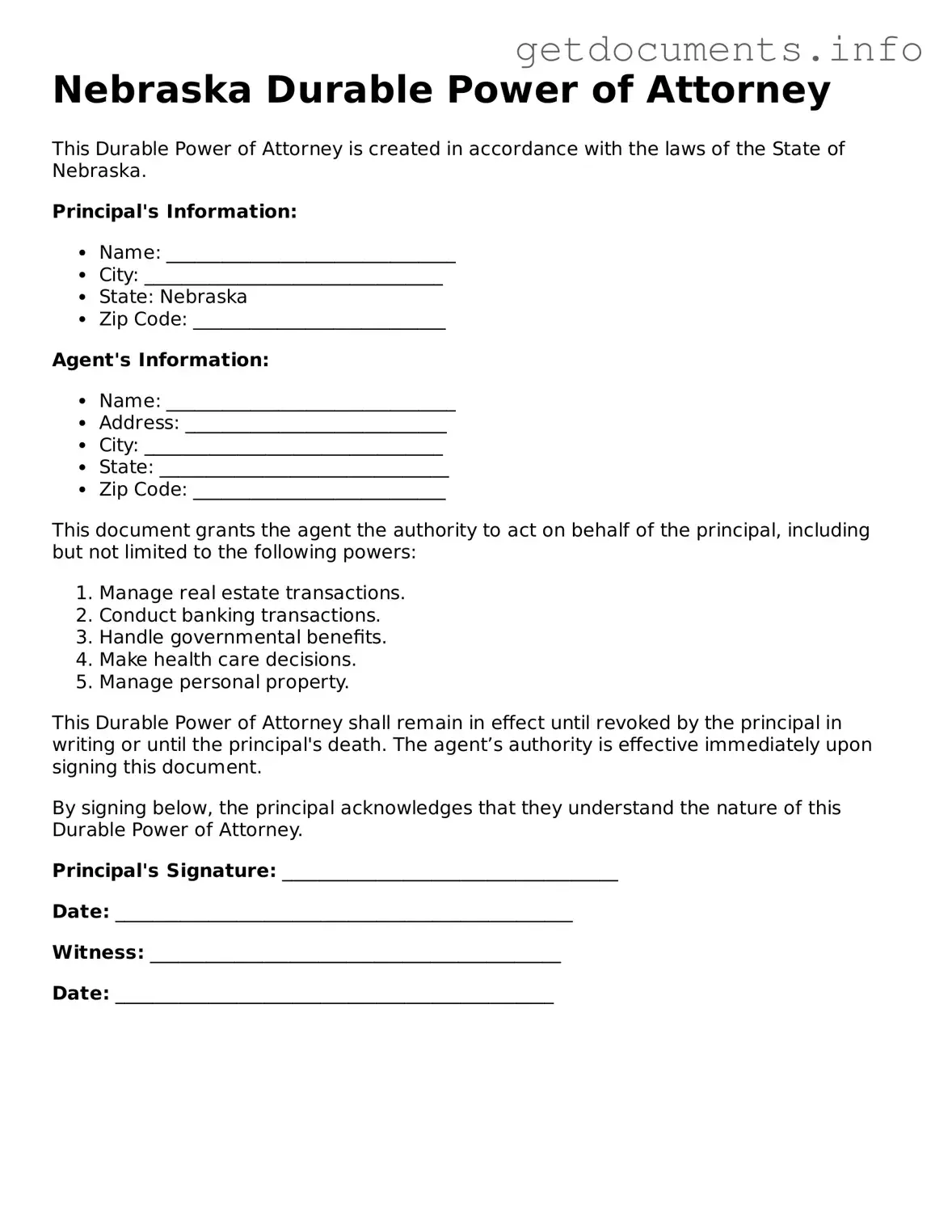Free Durable Power of Attorney Template for Nebraska
The Nebraska Durable Power of Attorney form is a legal document that allows you to appoint someone to make decisions on your behalf if you become unable to do so. This form ensures that your financial and legal affairs are managed according to your wishes, even if you cannot communicate them yourself. Understanding this important tool can empower you to take control of your future; start filling out the form by clicking the button below.
Access Durable Power of Attorney Editor

Free Durable Power of Attorney Template for Nebraska
Access Durable Power of Attorney Editor
Got places to be? Complete the form fast
Fill out Durable Power of Attorney online and avoid printing or scanning.
Access Durable Power of Attorney Editor
or
⇩ PDF File
